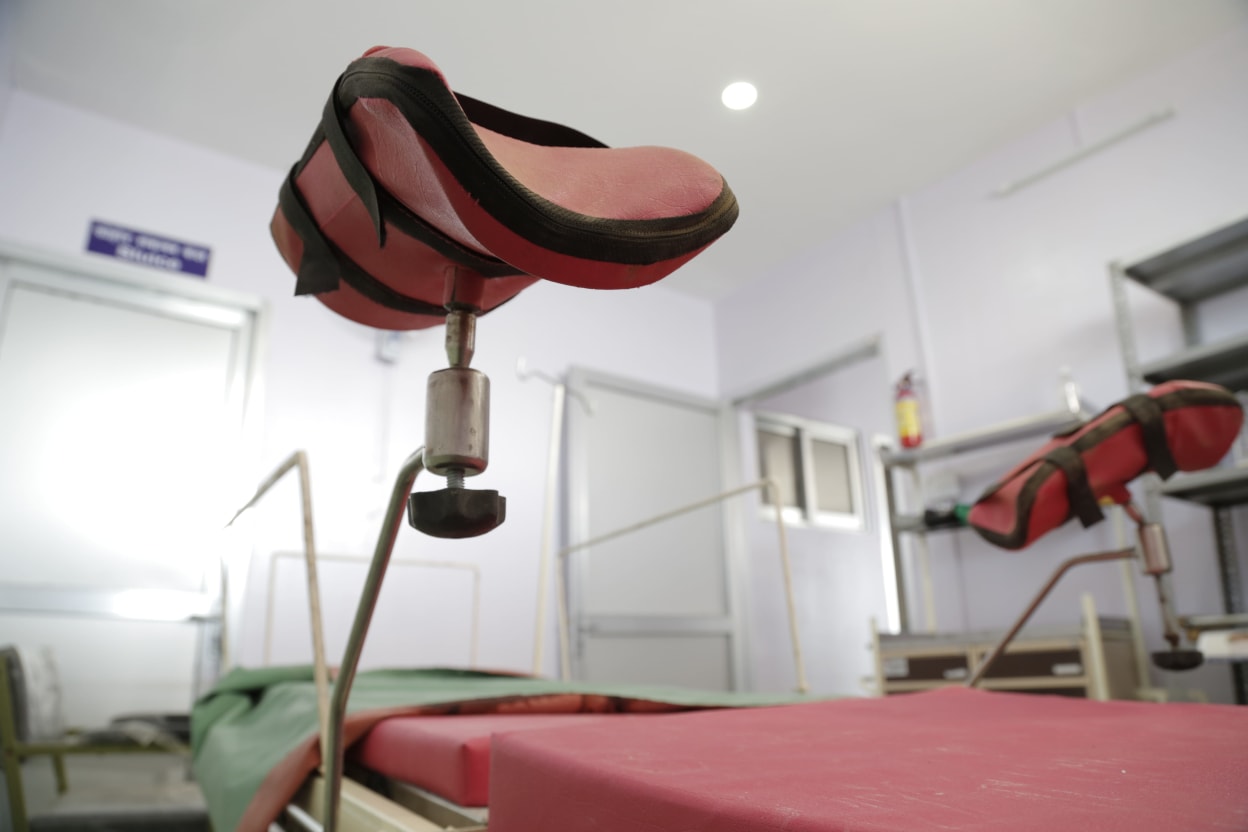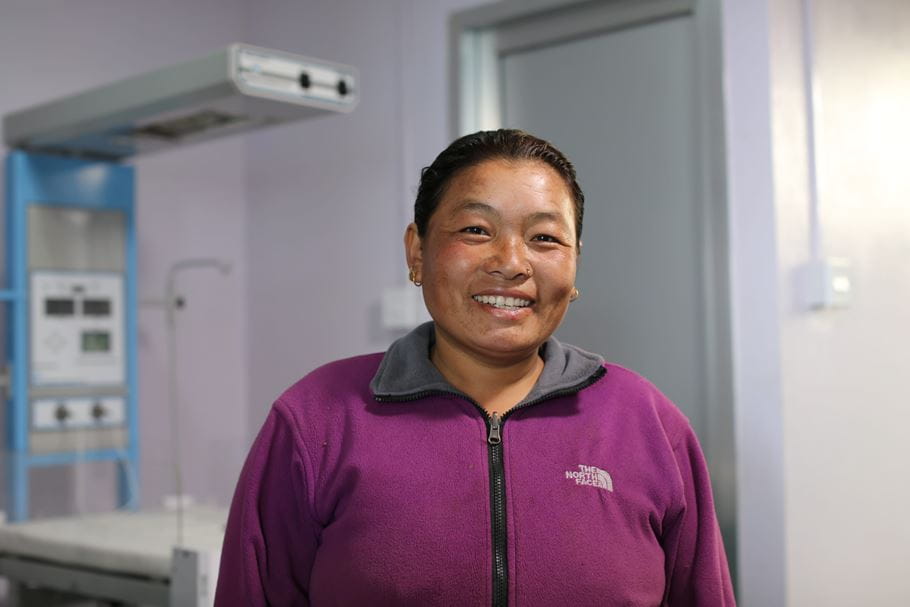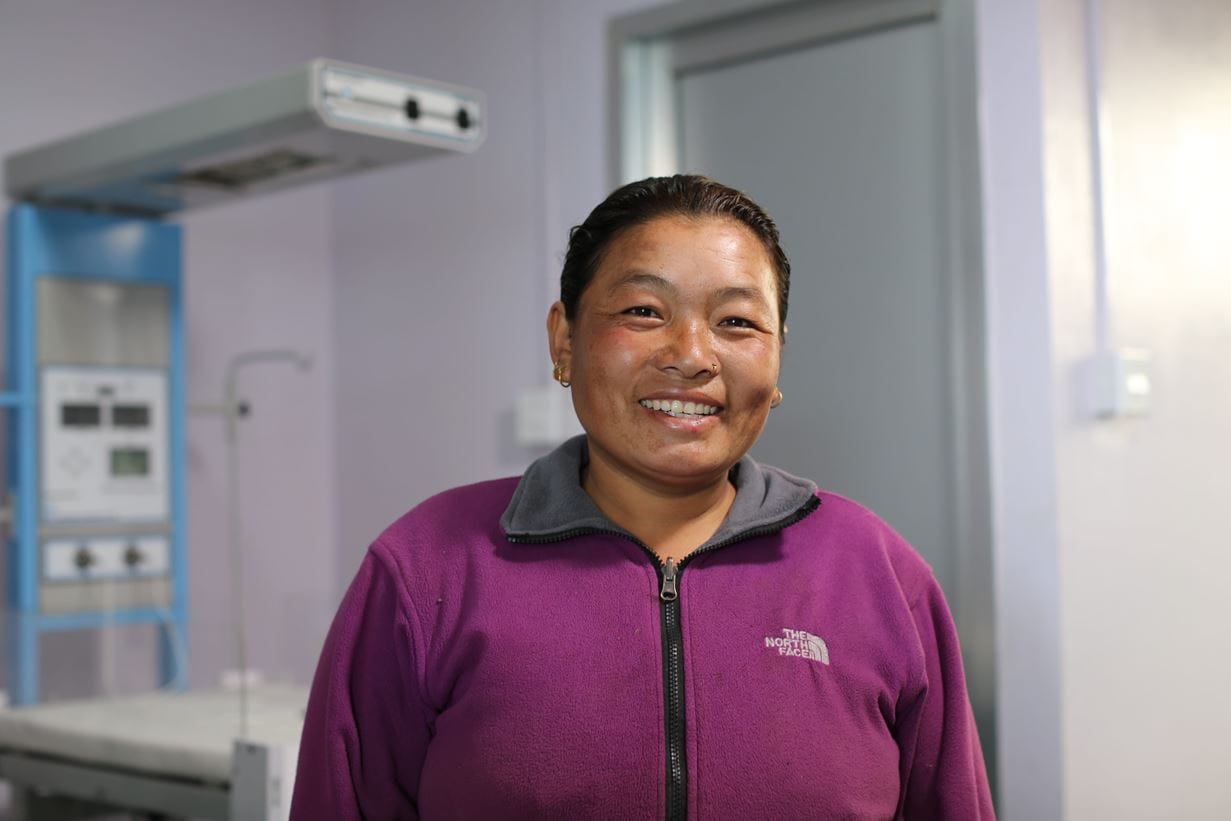Let there be light
This World Health Day, Priya’s story reminds us of the health workers across the world facing critical problems caused by lack of power.
Written by Tearfund | 04 Apr 2019



Written by
Written by Tearfund
Children can be heard playing outside while a camera is set up to capture Priya, a thirty-three year old volunteer at the medical centre in Saleri. Her translator helps her convey how the introduction of solar power has transformed the abilities of the medical centre in this remote part of Nepal.
It has brought light to their centre. This is paramount in terms of how the centre can serve its community. When women give birth in the night the health workers no longer have to use torches to see their patients, Priya explains it is much easier now.
The centre’s solar power system, receives approximately 12 hours of sunshine everyday and provides power for lights, necessary electrical equipment and the heating of water. Before the system was installed, Priya and her colleagues relied on limited access to power outside of the centre and torches. Priya is delighted to explain how much easier it is now to have hot water to sterilise the medical equipment. Without this, patients are at high risk of infection, especially when fridges cannot be powered to store antibiotics.
This new electricity enables the medical centre to care much more safely for patients 24 hours a day and offer more effective treatments with the proper storage of the medications they need. This is just the beginning of what the centre will be able to do with this solar power.
Priya’s village, Saleri, is in the Dhading District of Nepal. This region is remote and many villages in this area are off the national grid. It is often very difficult to install normal sources of power in places such as Saleri. Varied terrain and lack of infrastructure make it hard to join such villages to a national grid. However, solar power is a brilliant alternative. Local solar panels are relatively quick to install, their global price is constantly falling and importantly, it’s renewable!
‘“There’s a brightness - there are no dark corners, everything can be seen. It makes life easier and happier.”’


Whilst access to electricity is not an issue impacting health services in the UK, 1 in 7 people across the world do not have access to electricity. Priya’s story reminds us of the health workers across the world facing critical problems caused by lack of power.
Climate change must be addressed if we want to reduce poverty and solar power is an easy way for communities like Priya’s to have access to electricity in a sustainable way.
So, what can we do about it?
The World Bank has a goal to end world poverty by 2030. It has invested in solar power before and has made great progress, as we can see from Priya’s medical centre. However, currently only a small part of their investment goes into renewable energy sources, while the majority funds polluting fossil fuels.
Join us in asking the world bank to bring light where it is dark by investing more in off- grid renewable energy for communities like Priya’s. This will enable millions more people in poverty to have access to clean energy.
Share this page
Share this page to spread the word and help support those in need.

Get our email updates
Learn about our work and stay in touch with Tearfund. Hear about our news, activities and appeals by email.
Sign up now - Get our email updates





.png)
